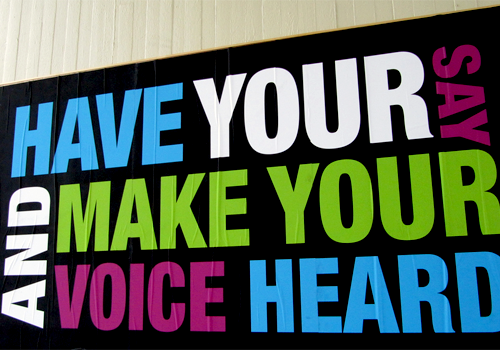Writer’s Kit: Why Writing From Your #OwnVoice is Crucial

We’re getting ready for Camp NaNoWriMo this April! What’s in your writer’s toolkit? Today, Katherine Cho, NaNoWriMo participant and writer, tells us why your own voice is an essential part of your writer kit:
Even if you’re writing an Epic High Fantasy, you’re probably including a piece of yourself in your characters and story. It could be a hometown setting, a favorite song, or just the color of the main character’s hair. So, when the hashtag #OwnVoices came up I was intrigued. Aren’t we always writing in our own voices? I discovered, though, that it meant more than that: it was meant to support authors writing about their own diversity.
I never used to include some of the things I saw as “my family only” in my writing: how my parents ate kimchi with pizza, that Spam was a regular food group in my house, or that my grandmother would speak Korean to all of my aunts even though they always replied in English. It didn’t seem like a story for me to tell. After all, my Korean American experience wasn’t the tell-all-be-all of Korean American experiences. Even some of my closest cousins grew up completely differently from me.
Fast forward a few years. More people started bringing up the need for literature to represent our society in all of its diverse glory. It felt great, like change was coming. Still, I played it safe. I made my first character someone who was half-Korean and never talked about her roots. Partly because I still believed I shouldn’t be the voice for the Korean American experience. Partly because I’d have to explain what the word “halmoni” meant (grandmother) or why she called her aunt “Emo Katie” (Emo = mother’s sister).
I thought that no one would want to read a book that sounded like a cultural text book. Then I realized that there were already books like the Lord of the Rings or Game of Thrones series that have entire made-up languages and cultures, presented without explanation or apology.
I was just making excuses and letting my fear tell me that my story wasn’t worth telling. I thought that since many readers wouldn’t have lived my life they wouldn’t be interested in a story influenced by my upbringing. But, if readers can be interested in fictional orcs, why can’t they be interested in real-world cultures that have stories that could blow orcs out of the water.
In writing, we can’t have fear. Our stories will absorb that feeling and potentially be disingenuous. We need to be bold and free to write about not only what we know, but what we love. That will show through in your story. We should all be bold and write what we are into our stories. Then our books will show the diversity that exists in this world in a natural and genuine way. Your story might not be the universal story, but it’s still yours and that story deserves to be told.

Kat loves to incorporate her Korean American heritage in her writing, especially if it involves describing food. She loves to read and write MG and YA, mostly sci-fi and fantasy. When she’s not reading and writing (or blogging about reading and writing), she likes to play her favorite game, watch-all-the-Hulu-videos-before-they-expire. She loves anything that encourages nerding out, including reading, blogging, k-pop and anime. She’s been taking part in NaNoWriMo since 2013.
Top photo by Flickr user Howard Lake.
Chris Baty's Blog
- Chris Baty's profile
- 63 followers



